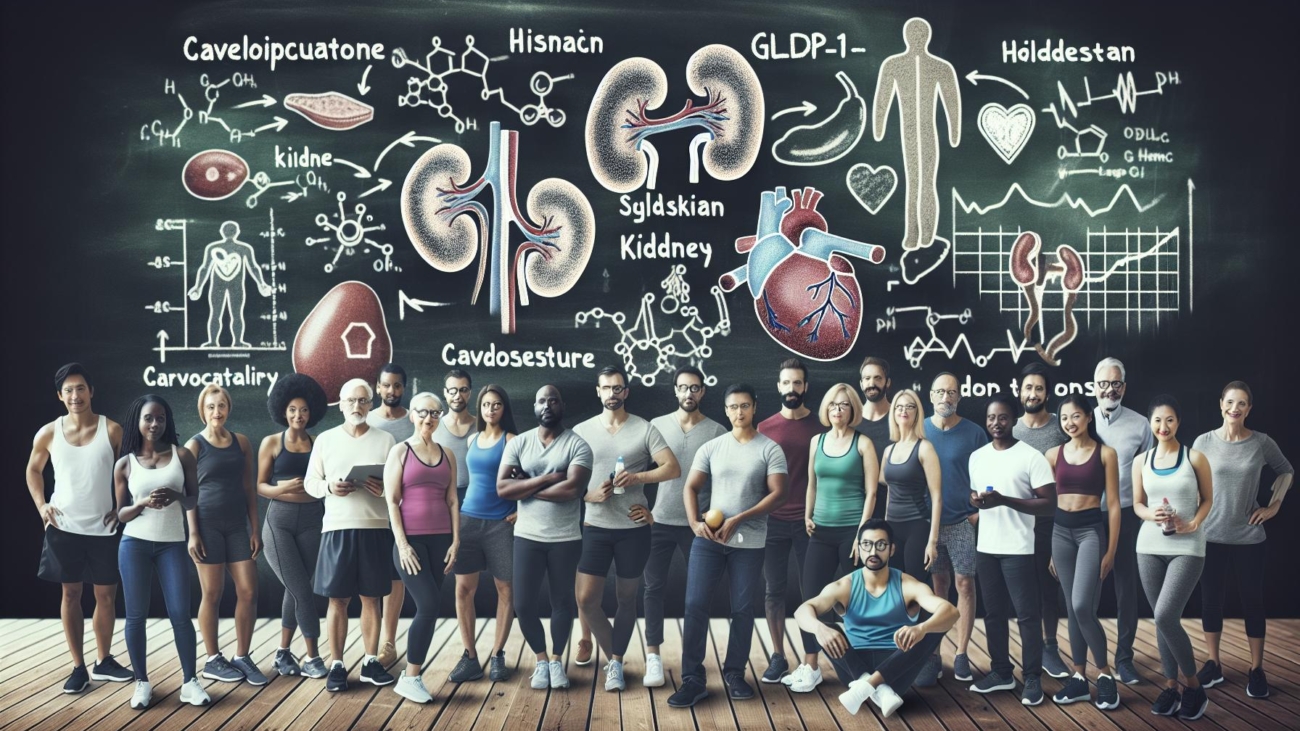The most extensive analysis to date of glucagon-like peptide-1 (GLP-1) receptor agonists, drugs used primarily for diabetes and obesity, reveals their considerable benefits in protecting kidney and cardiovascular health in both diabetic and non-diabetic individuals. This research was recently published in The Lancet Diabetes & Endocrinology journal.
GLP-1 receptor agonists, initially designed to manage diabetes, imitate the function of a hormone named glucagon-like peptide 1. This hormone prompts insulin production and reduces blood sugar levels. Recently, these drugs have been found effective in treating obesity by slowing digestion, increasing satisfaction after meals, and curbing hunger.
Although the advantages of GLP-1 receptor agonists in managing type 2 diabetes, obesity, and heart disease are well-established, their impact on chronic kidney disease (CKD) was unclear until now.
The researchers analyzed 11 extensive clinical trials of GLP-1 receptor agonists involving 85,373 participants, including patients with type 2 diabetes, overweight, obesity, and cardiovascular disease. The study examined seven different GLP-1 receptor agonists, including semaglutide, dulaglutide, and liraglutide.
The results revealed that compared to a placebo, GLP-1 receptor agonists decreased the risk of kidney failure by 16% and the deterioration of kidney function by 22%. The risk of kidney failure, declining kidney function, and death due to kidney disease was reduced by 19% collectively.
The study also reaffirmed previous findings that GLP-1 receptor agonists safeguard cardiovascular health, reducing the risk of cardiovascular death, non-fatal heart attack, and non-fatal stroke by 14% compared to a placebo. Overall mortality was 13% lower in patients treated with GLP-1 receptor agonists.
Lead author Professor Sunil Badve from The George Institute for Global Health and UNSW Sydney elaborated on the significance of these findings. He highlighted the study as the first to demonstrate a substantial benefit of GLP-1 receptor agonists in preventing kidney failure or end-stage kidney disease. This suggests these drugs’ vital role in protecting heart and kidney health in patients with conditions like type 2 diabetes, obesity, cardiovascular disease, or CKD.
Importantly, these findings offer hope for patients with CKD, a progressive disease leading to kidney failure, requiring dialysis or kidney transplantation, and associated with premature death, primarily from heart disease. This disease significantly affects patients’ quality of life and incurs considerable healthcare costs.
CKD is estimated to impact one in ten people globally, equating to approximately 850 million people. It is currently the tenth leading cause of death and is expected to become the fifth most common cause by 2050. Diabetes, cardiovascular disease, and obesity are independent risk factors for CKD and represent a significant global health challenge.
Professor Vlado Perkovic, senior author of the study, emphasized the importance of these findings in addressing the worldwide burden of non-communicable diseases. He called for more work to integrate these findings into clinical practice and to improve access to GLP-1 receptor agonists for those who would benefit.
